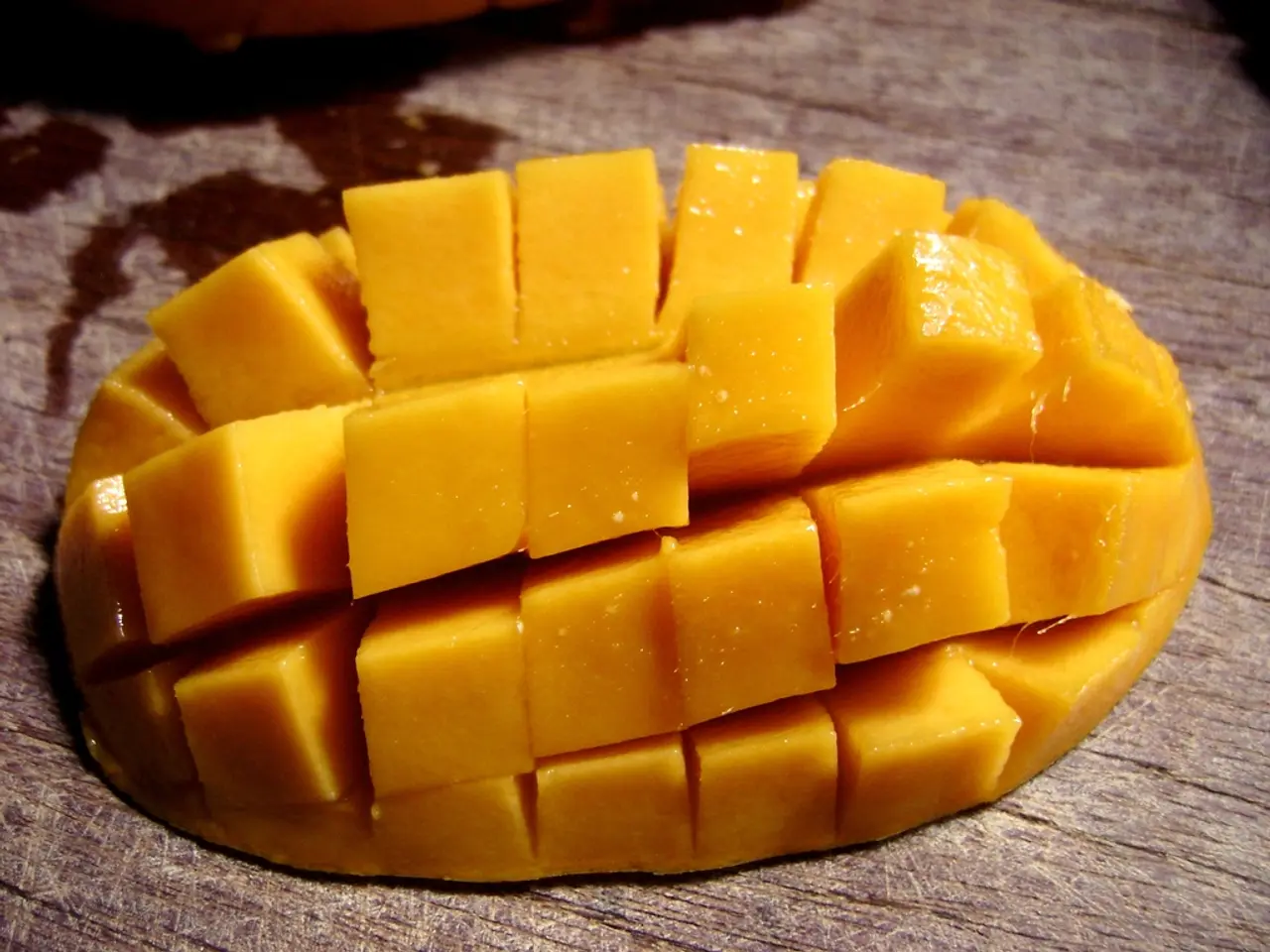Strategies for Transforming Your Mango Farm into a Thriving Commercial Venture
=========================================================
In an effort to enhance mango farm sales and establish a sustainable business, several strategies have been implemented. The focus lies on long-term growth and profitability, with a strong emphasis on forming strong neighborhood partnerships, optimizing the mango farm for higher yields and better quality produce, and implementing effective pest and disease management.
Forming Strong Neighborhood Partnerships
By directly selling to local markets, grocery shops, and wholesalers, mango farms can increase sales and improve their standing in the community. Building long-term ties with these partners ensures demand for produce and better prices, providing a steady flow of cash and helping establish trust in the community.
Optimizing Mango Farm Land
To optimize mango farm land for higher yields and better quality produce, several practices have been employed. Soil preparation and pH management are crucial, with mango trees thriving best in soil with a pH between 5.5 and 7.5. Regular soil testing helps maintain this optimal range to support nutrient uptake and root development. Incorporating organic matter up to around 40% significantly boosts yield by improving soil structure and fertility.
Proper planting and irrigation techniques are also essential. When planting, the mango tree should be positioned so the root ball is level with the surrounding soil to avoid root damage or poor growth. Consistent and appropriate irrigation is crucial, with the use of soil moisture sensors and smart irrigation controllers preventing overwatering or drought stress.
Embracing Modern Technologies
Advanced technologies such as AI soil analytics and real-time satellite monitoring help detect nutrient deficiencies, predict disease outbreaks, and optimize input application. Biofertilizers and beneficial microbes enhance nutrient cycling, disease resistance, and overall plant vigor without excessive chemical use.
Effective Pest and Disease Management
Precise timing of bactericide and fungicide applications guided by predictive models and scouting data minimizes fruit damage and helps maintain high market quality.
Adding Value to Mango Products
To increase income sources, adding different mango products to the farm is recommended. This includes mango pulp, juice, dried mango, and mango pickles, which have longer shelf lives and can be sold to a wider market. Partnering with nearby restaurants, food processors, and juice makers can help sell these value-added mango goods.
Digital Marketing and Social Media
Utilizing digital marketing and social media to interact with customers can help reach more people, promoting the mango farm and its products. The blog aims to provide tried-and-true ways to make the most money and make progress over time in the mango farming business.
On November 26, 2024, a blog discussed strategies for running a profitable mango farm, outlining the importance of soil preparation and pH management, planting techniques, water management, soil and crop health technologies, mulching, pest and disease management, and harvest timing.
References:
[1] Soil Testing and Fertilisation for Mango. (n.d.). Retrieved from https://extension.usu.edu/mango/soil-testing-and-fertilization
[2] Pest and Disease Management. (n.d.). Retrieved from https://extension.usu.edu/mango/pest-and-disease-management
[3] Irrigation. (n.d.). Retrieved from https://extension.usu.edu/mango/irrigation
[4] Harvesting. (n.d.). Retrieved from https://extension.usu.edu/mango/harvesting
- An entrepreneur in the food-and-drink sector sees potential in mango farmland and aspires to build a sustainable business by implementing strategies tailored for long-term growth and profitability.
- This small-business venture seeks to foster diversity-and-inclusion by establishing strong neighborhood partnerships, providing fresh produce to local stores, markets, and wholesalers.
- To optimize mango farmland for higher yields and better quality produce, the entrepreneur focuses on soil preparation and pH management, regular soil testing, smart irrigation techniques, and proper planting methods.
- A key aspect of the sustainable-living strategy is the incorporation of organic matter, boosting the soil's structure, fertility, and overall crop health.
- Embracing modern technologies such as AI soil analytics, real-time satellite monitoring, and biofertilizers helps reduce chemical usage, improve crop health, and increase efficiency in the mango farming business.
- Effective pest and disease management is essential for maintaining high market quality; precise timing of bactericide and fungicide applications is crucial in minimizing fruit damage.
- To add value to mango products and increase income sources, the entrepreneur plans to sell mango pulp, juice, dried mango, mango pickles, and partner with nearby food processors and restaurants.
- Digital marketing and social media will be leveraged to promote the business, interact with customers, and share valuable insights on mango farming, personal-finance, and business growth.
- On November 26, 2024, the entrepreneur will publish a blog discussing strategies for running a profitable mango farm, with focus on soil preparation, irrigation, soil and crop health technologies, pest and disease management, and harvest timing.
- The global-cuisines enthusiast may find inspiration in the entrepreneur's journey as they explore various cooking techniques, lifestyle preferences, and career opportunities in the food-and-drink industry.
- Budgeting and finding deals-and-discounts on necessary farming equipment and supplies will be important aspects of the entrepreneur's business plan, ensuring that the mango farm remains fiscally sound in the long run, while also offering dynamic shopping experiences for customers through product-reviews and the latest trends in entertainment and pop-culture.




